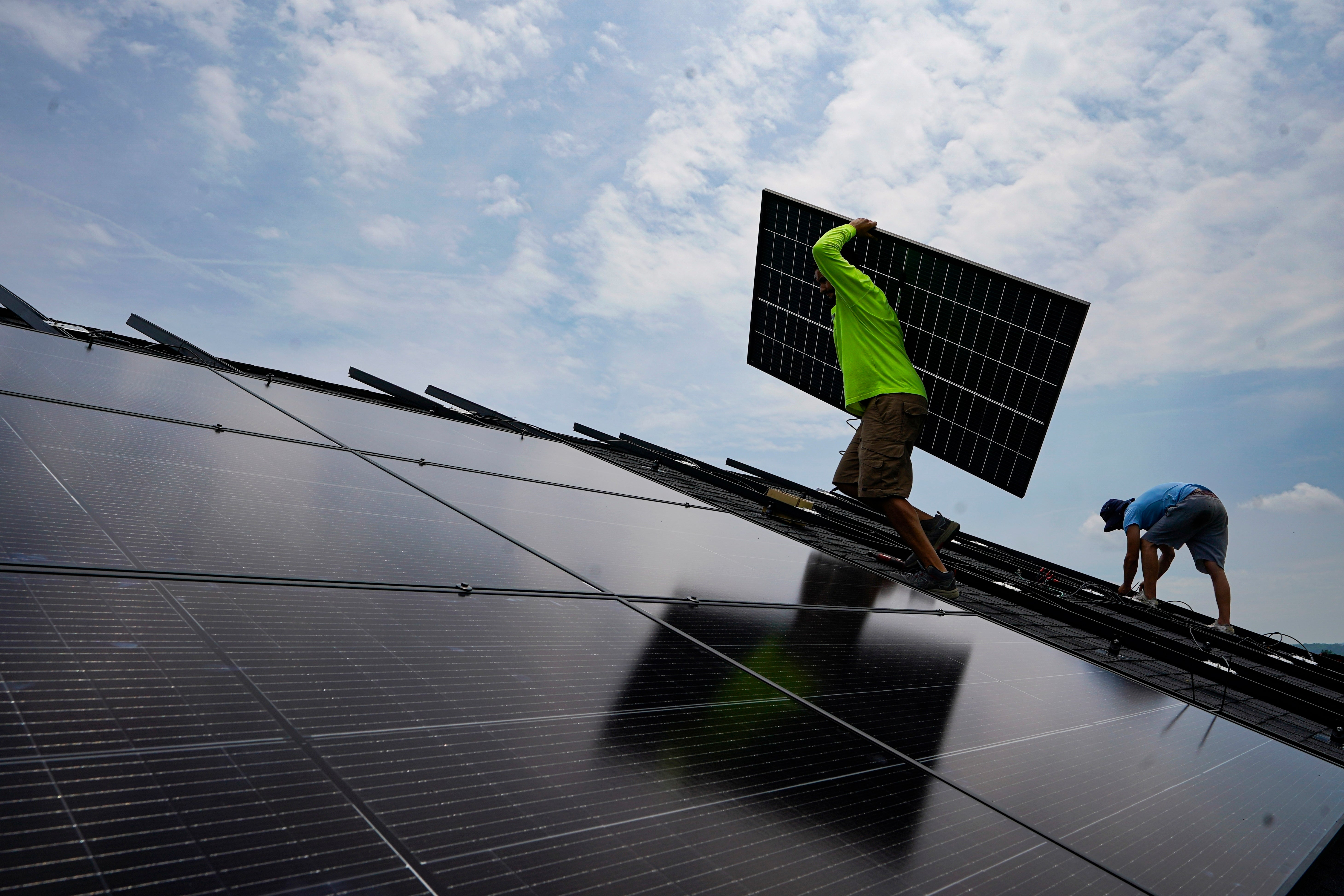How to make sure your solar panels are safe
As the number of fires linked to solar panels rises, experts explain how you can limit the risks and keep your home safe
Your support helps us to tell the story
From reproductive rights to climate change to Big Tech, The Independent is on the ground when the story is developing. Whether it's investigating the financials of Elon Musk's pro-Trump PAC or producing our latest documentary, 'The A Word', which shines a light on the American women fighting for reproductive rights, we know how important it is to parse out the facts from the messaging.
At such a critical moment in US history, we need reporters on the ground. Your donation allows us to keep sending journalists to speak to both sides of the story.
The Independent is trusted by Americans across the entire political spectrum. And unlike many other quality news outlets, we choose not to lock Americans out of our reporting and analysis with paywalls. We believe quality journalism should be available to everyone, paid for by those who can afford it.
Your support makes all the difference.The rising spate of solar panel fires has sparked safety concerns as more homeowners turn to renewable energy to tackle rising bills.
An investigation by The Independent, using data obtained under freedom of information laws, showed there were six times the number of fires involving solar panels last year compared with 10 years ago.
The rate has increased sharply with 66 fires already recorded up until July this year compared with 63 for the whole of 2019.
Safety experts have voiced concern about a lack of regulation on who can install them and have called for change.
But if you have solar panels or are thinking of getting them installed, how do you ensure they are safe?
Use a registered installer
Martyn Allen, from the charity Electrical Safety First (ESF), advises choosing a registered installer who has been assessed for solar installations.
He said they must be aware of the standards that solar products should comply with including BS EN 61730-1, BS EN 61215, BS EN 61646, MCS 0065.
“This will provide a better guarantee of safety and also redress, in the unlikely event of something going wrong,” he says.
Gareth Simkins from the trade association Solar Energy UK (SEUK) agrees. “The best and simplest way for consumers to ensure that their solar and/or battery installation is conducted by a legitimate company is to make sure that their installers are members of MCS.
“We require all residential installer members of Solar Energy UK to be MCS-certified and to use products certified by the body to ensure safety and quality.”
Only use certified products
Ian Rippin, chief executive at Microgeneration Certification Scheme (MCS) which certifies installers, said that its standard exists not only for the installation, but also for the products used.
An MCS-certified installation must only use products which have been tested for safety and performance to “robust industry standards,” he says.
“To ensure that their home solar remains safe and efficient, consumers should only invest in certified systems made of certified products, installed by a certified contractor,” he adds.

Install a micro-inverter
Captain Richard Birt, who worked for 30 years as a firefighter before founding the platform Solar And Fire Education (SAFE), recommends homeowners consider retrofitting a micro-inverter system.
They can be connected to solar panels to convert the electrical output to a safer 230V AC voltage.
While this would add costs, Cpt Birt said it would only involve replacing the single string inverter with micro-inverters and homeowners could keep their panels and storage.
Get your solar panels safety tested regularly
Above all, homeowners must be aware that panels are not a fit-and-forget technology and require periodic testing, according to Gillian Perry, a major loss manager for insurance firm Zurich.
Mr Allen agrees, and adds that homeowners should have their installation regularly checked by a professional– preferably the company responsible for the installation. This would include taking any action advised as a result of the inspection.
Disconnect immediately if you spot problems
Finally, said Mr Allen: “If there are any signs of the installation not working as expected, signs of overheating, the smell of burning or unusual noises – isolate the supply and call the company who installed it”.
Subscribe to Independent Premium to bookmark this article
Want to bookmark your favourite articles and stories to read or reference later? Start your Independent Premium subscription today.





Join our commenting forum
Join thought-provoking conversations, follow other Independent readers and see their replies
Comments